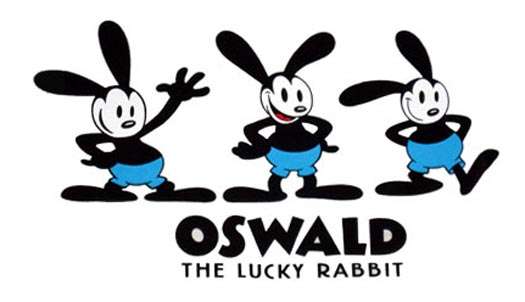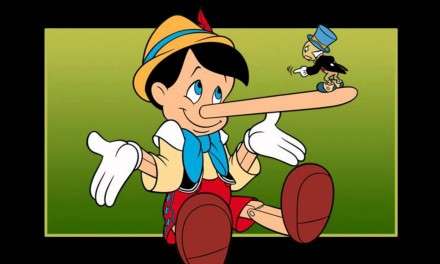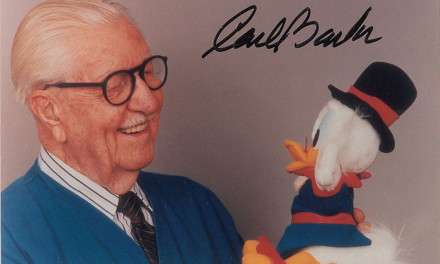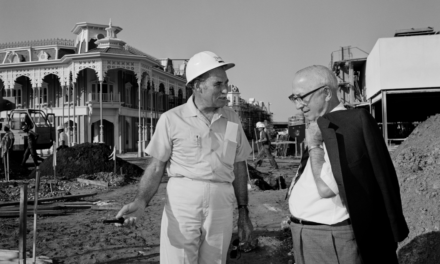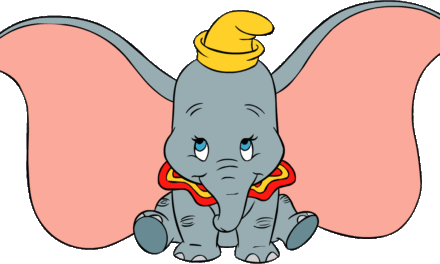In early cartoons, Oswald was very similar to the early incarnations of Mickey Mouse, that being the mischievous but well-meaning character made popular among cartoons in the 1920s. He was quite energetic, adventurous and almost always caused trouble, but found his way out through cunning and wit. Oswald loved to play and make others laugh, but despite his flaws, he has morals and always tries to do the right thing.
In his current revival (specifically in the Epic Mickey series), Oswald is portrayed as more aggressive, serious, and short-tempered than Mickey, though he does have a sense of fun and humor. Oswald is also introduced as being rough, bitter, spiteful and cold around anyone he doesn’t trust. Ironically, despite having the moniker “lucky,” Oswald is prone to bad luck as much as good luck, as he usually lands into adverse situations that require the luck and chance to resolve them.
Aside from the Epic Mickey games, Oswald has also been shown harboring a strong jealousy towards his “replacement” for effectively stealing his life. Some materials indicate this relationship outside of the games; pictures drawn by Walt himself depicted Mickey and Oswald meeting for the first time and support these sentiments. Oswald appeared to have a strong attachment to Walt to the point that he had a replica of his statue built in Wasteland, viewing him as a fatherly figure. Unfortunately, Walt’s apparent favor towards Mickey would contribute further to Oswald’s bitterness. Being forgotten for over 80 years made him very cynical (and quite selfish) about his life, mainly due to how no one remembers him. However, he is sympathetic towards others who suffer fates similar to his. It takes someone with a strong will to earn his trust. Beneath his harsh and cold exterior, however, lies a saddened, miserable and hurt character who just wants to be loved again by the hearts of millions. His time with Mickey helped him realize how Mickey cares about him despite their differences and the glory Mickey (unknowingly) stole from him for so long, allowing Oswald to drop his grudge and accept Mickey since it is what Walt would have wanted. It also makes him realize that it’s not how many people that love you, but it’s the people themselves.
Besides being rather grumpy, Oswald is still mischievous, but he has a more mature approach towards life. With luck on his side, Oswald is willing to take risks and will attempt to do what’s best for his family and friends. Though he doesn’t appear to be, Oswald can be quite friendly if he wants to. His love for Ortensia is just as strong as Mickey’s love for Minnie.
After the Alice Comedies, Disney’s second animated series (after theLaugh-o-Grams), folded up in 1927, Carl Laemmle approached Disney and requested a new all-animated series featuring a rabbit. Disney and Ub Iwerks created a new character called “Oswald the Lucky Rabbit”. The first Oswald cartoon, Poor Papa, was poorly received by Charles Mintz and he demanded a better, younger version of Oswald. The next cartoon, Trolley Troubles, was well-received and the series was officially launched.
In 1928, with the series going strong, Disney demanded an increased budget from Mintz, which he refused. Mintz instead told Disney that he was going to cut the budget and if Disney did not agree to the cut, Mintz would take Oswald for himself. Disney refused and most of Disney’s employees left to go work for Mintz. Only Ub Iwerks and Les Clark remained, who, along with Walt, secretly created a new cartoon star to replace Oswald — Mickey Mouse, who became the most legendary cartoon icon in the world, which is what would’ve been Oswald’s position.
Meanwhile, over at Universal, Oswald’s popularity and appearances in films would diminish with every passing year until the character fell into obscurity and was ultimately forgotten by the public and possibly Universal itself.
In 2002, an episode of House of Mouse called “Dennis the Duck” inspired Disney to get Oswald back from Universal. Over the years, they had tried to get Oswald back through many attempts, but kept failing.
In 2006, the Walt Disney Company finally got back the rights to Oswald through a trade with sportscaster Al Michaels after over 80 years. To celebrate Oswald’s triumphant return to the company, a line of special merchandise was released at Disney Stores nationwide and a Walt Disney Treasures DVD set was released compiling all of the surviving Disney-produced Oswald cartoons.

